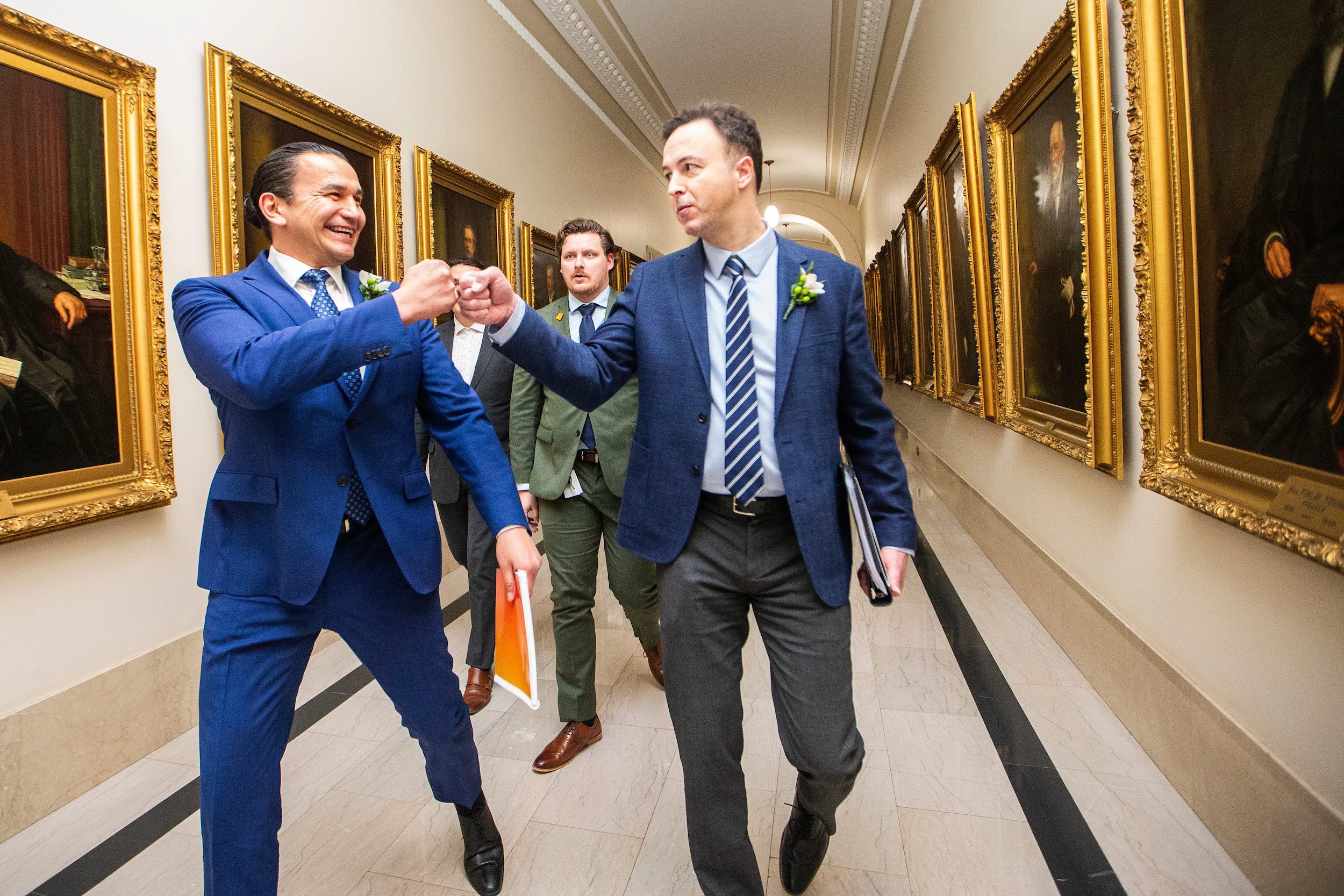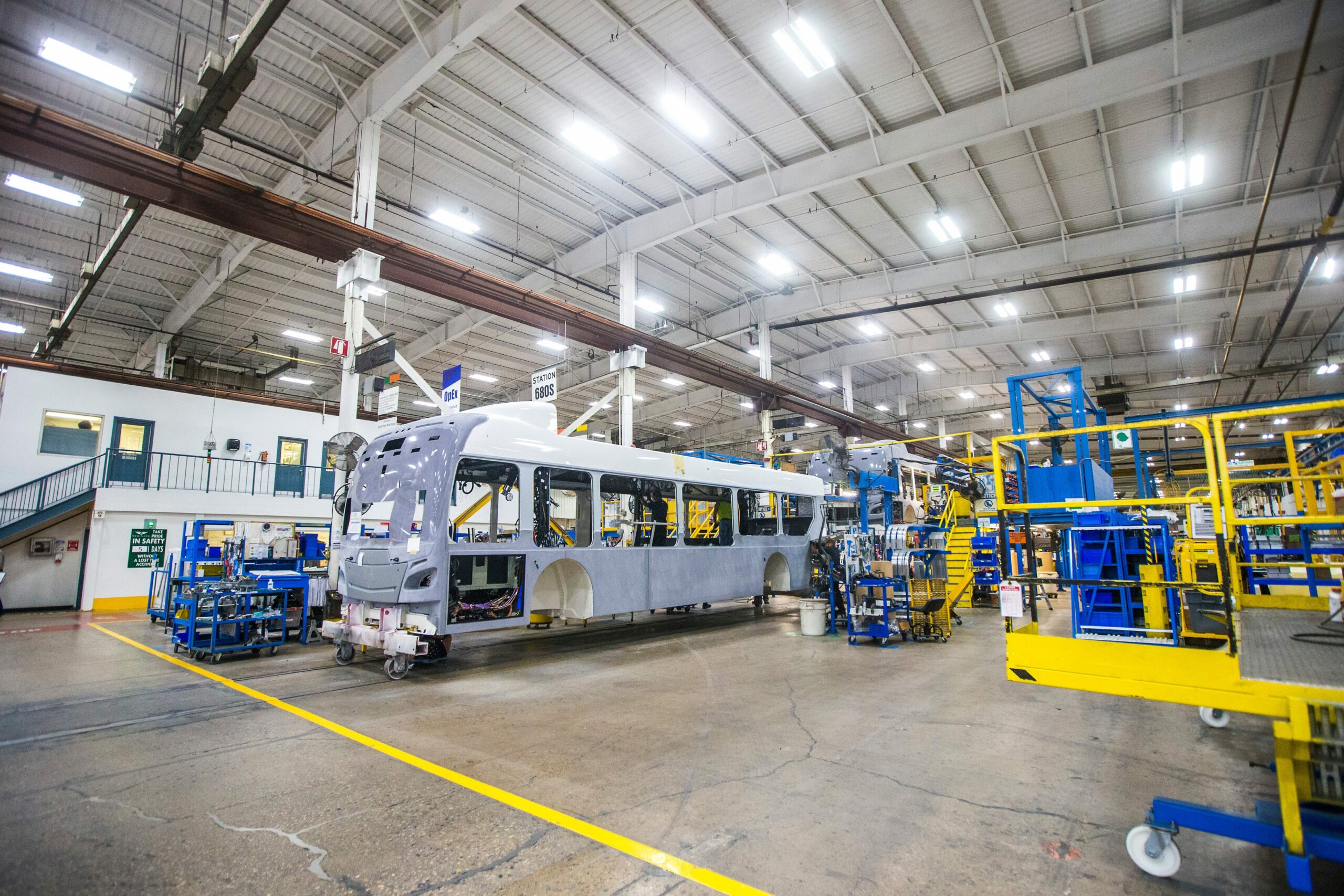
Ontario’s Bill 5 sparks new concerns where a legacy of environmental damage remains
The Protecting Ontario by Unleashing Our Economy Act exempts industry from provincial regulations — putting...
Just days after doubling down on his opposition to the federal backstop carbon price, Manitoba Premier Wab Kinew laid out a budget he promised would flesh out “a really credible path to net zero.”
Kinew had said his budget would lay the groundwork for an alternative to the backstop federal carbon price, which rose to $80 per tonne on April 1. Manitoba has been subject to the backstop carbon pricing since 2017, when the previous government’s alternative emissions reduction plan was rejected by the federal government.
But facing a challenge to mitigate deficits, deliver on healthcare commitments and rebalance the provincial books, environment spending is projected to remain fairly constant into 2024, with few new budget lines to illustrate a net-zero pathway.
Here are some key takeaways:
The province has opted to extend the provincial gas tax cut — which has eliminated a 14-cent-per-litre tax on gasoline since Jan. 1 — until the end of September. That tax cut will cost the government an additional $85.2 million in lost revenue.

As promised on the campaign trail, the New Democratic Party budget includes $5.4 million in rebates for new and used electric and plug-in hybrid vehicles, retroactive to August 1, 2023.
Kinew called the rebate, which would provide $4,000 for new vehicles and $2,500 for used cars, “a significant step towards electrifying transportation in Manitoba,” particularly for lower- and middle-income Manitobans.
No funding has been set aside for electric vehicle charging infrastructure, though Finance Minister Adrien Sala suggested those commitments would come in the future.
“Manitoba, it seems to me, is playing catch-up with other jurisdictions that have an [electric vehicle] rebate,” Molly McCracken, director of the Canadian Centre for Policy Alternatives’ Manitoba office, said after the budget announcement.
McCracken said many climate policy analysts were hoping to see the province re-commit to a 50-50 cost-sharing program with municipalities for public transit infrastructure. That funding was cut by the Progressive Conservatives in 2017.
“A lot of people in the climate community have been concerned about too much emphasis on [electric vehicles] because that’s really just swapping out gas cars for electric vehicles when we know we actually have to also get people on transit.”
Asked about funding for public transit, Kinew touted a $10 million investment in Winnipeg-based electric bus manufacturer New Flyer Industries. The funds will be used to create 400 “low-carbon manufacturing jobs,” and help establish a national innovation centre for heavy equipment vehicles in Winnipeg.
“We want to make a showcase here so other jurisdictions can say: ‘That’s how you run a transit system, that’s how you bring zero-emission buses online,’ ” Kinew said. “That’s how I think we can really punch above our weight in terms of fighting the climate crisis.”
The budget also promises to deliver on a campaign commitment to provide ground-source heat pumps to Manitoba families, but stops short of dedicating specific funds to the initiative.
McCracken said the Canadian Centre for Policy Alternatives had been pleased by the campaign commitment to geothermal heating, but was disappointed not to see specific numbers tied to those commitments in the budget.
“We need to rapidly do energy efficiency upgrades to our commercial and residential buildings, there’s really nothing in there about that,” McCracken added. “There’s green talk but not a lot of numbers attached.”

The Manitoba government campaigned on a promise to connect 5,000 homes to geothermal heating over four years, at a cost of $130 million over four years, about $32 million annually. That program will be delivered in partnership with the federal government.
“Going to ground source geothermal heat pumps to be able to electrify home heating is a really important priority for the homeowners themselves; it also frees up electricity on the grid,” Kinew said.
Asked how much money would be dedicated to the program, or how many homes the province hoped to connect this fiscal year, Sala said details were still forthcoming, and would be included in upcoming plans from Efficiency Manitoba.
Beyond following through on campaign pledges, Manitoba’s climate and environment funding amounts to approximately $11.5 million in sweeping budget lines geared at funding “initiatives under Manitoba’s plan for climate and sustainability priorities,” including restoring an unspecified amount of funding to environmental organizations, and a $5 million contribution to the bilateral low-carbon economy agreement with the federal government.
Trudeau’s parliamentary secretary Terry Duguid praised Kinew for making strides on climate change that aligned with federal priorities.
“I appreciate the spirit that I’ve heard from the premier, which is very different than the spirit from other premiers across the country. Premier Kinew is at least prepared to work with us to find a way forward,” he said.
Asked about the premier’s statements regarding the federal backstop carbon price, Duguid, who serves as member of parliament for Winnipeg South, expressed hope the province would soon produce “a made-in-Manitoba plan that is acceptable to the federal government and meets the standards that other provinces are meeting.”
Much of Manitoba’s climate commitments will be paid for out of the long-standing $40 million climate and green fund, which supports “the development and implementation of various environmental innovation, carbon reduction and climate change projects.”
While the budget promises to increase staffing for parks and the conservation officer service, it makes no mention of the NDP’s campaign promise to work towards protecting 30 per cent of lands and waters by 2030.
Get the inside scoop on The Narwhal’s environment and climate reporting by signing up for our free newsletter. On a warm September evening nearly 15...
Continue reading
The Protecting Ontario by Unleashing Our Economy Act exempts industry from provincial regulations — putting...

The Alberta premier’s separation rhetoric has been driven by the oil- and secession- focused Free...

Canada’s first-ever Indigenous governor general doesn’t play favourites among our majestic natural wonders, but she...
